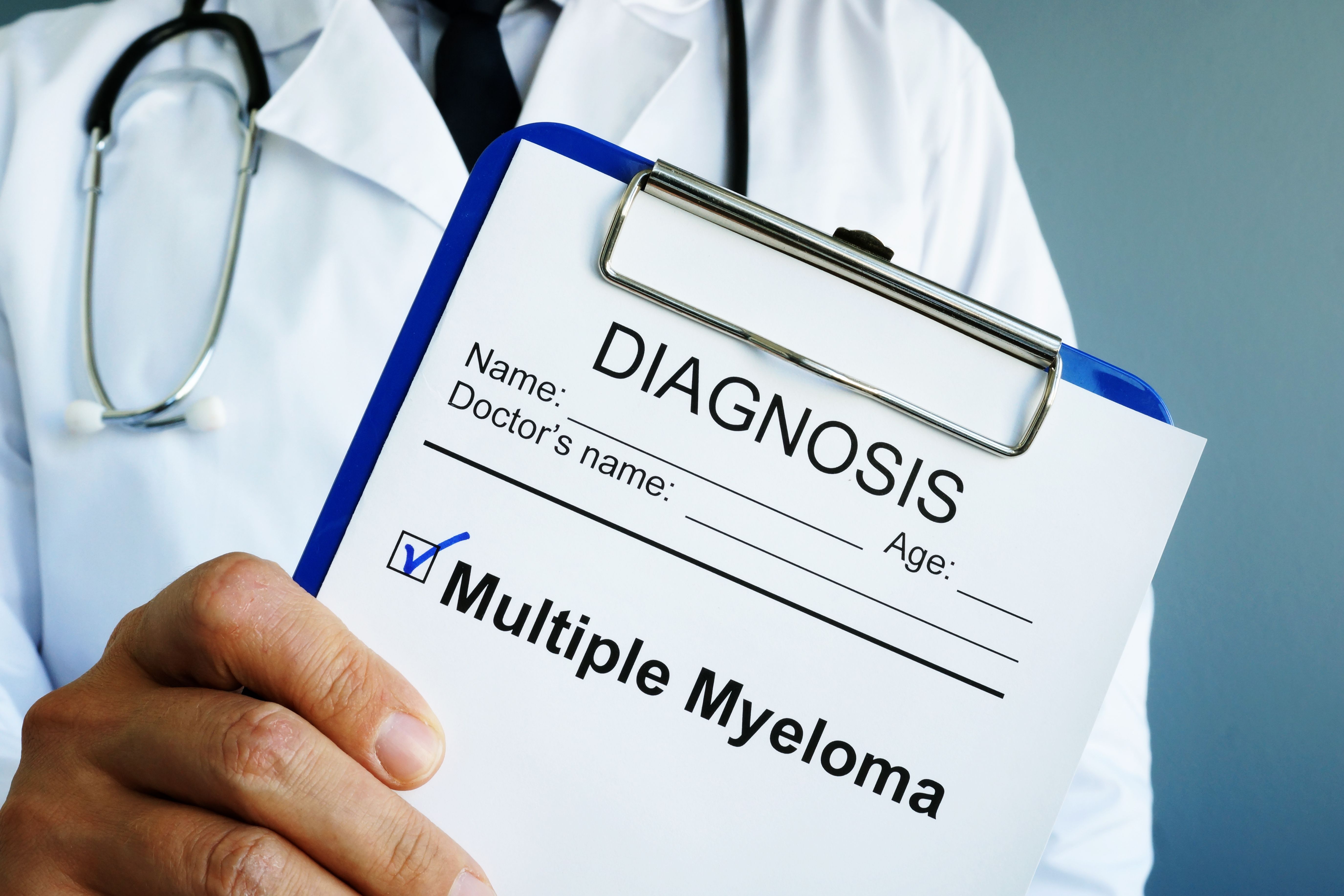A study published in Oncotarget examined the efficacy of GZ17-6.02 in multiple myeloma cells. Previously, GZ17-6.02, a synthetically manufactured compound that contains isovanillin, harmine, and curcumin, underwent a phase 1 trial to evaluate the efficacy of the treatment in solid tumors (NCT03775525) such as metastatic hormone receptor-positive (HR+) breast cancer and advanced solid lymphoma.1,2
The phase 1 trial randomly assigned participants into 1 of 3 GZ17-6.02 dose groups: a dose escalation group that received oral GZ17-6.02 daily for 28 days; twice-daily oral GZ17-6.02 in a 21-day schedule in combination with 825 mg/m2 twice-daily oral capecitabine for 14 days in a 21-day schedule; and twice-daily oral GZ17-6.02 in a 21 day schedule in combination with 850 mg/m2 twice-daily oral capecitabine for 14 days in a 21-day schedule. The primary outcome measure was maximum tolerated dose. Following the phase 1 trial, a recommended phase 2 dose (RP2D) of 375 mg of twice-daily oral GZ17-6.02 in combination with bortezomib.1,2
According to the current trial results, GZ17-6.02 with bortezomib demonstrated greater levels of autophagosome formation in multiple myeloma cells than solid tumors; however, the amount of autophagic flux to autolysosomes were not observed to be significantly enhanced. The results also indicated that the combination treatment was stronger at killing multiple myeloma cells than prostate cancer cells, and both tumor types demonstrated an elimination of ULK, reduction in Beclin1 or ATG5 autophagosome formation, and tumor cell killing.
About the Trial
Trial Name: Study Evaluating GZ17-6.02 in Patients With Advanced Solid Tumors or in Combination With Capecitabine in Metastatic Hormone Receptor Positive Breast Cancer (GEN602)
ClinicalTrials.gov ID: NCT03775525
Sponsor: Genzada Pharmaceuticals USA, Inc.
Completion Date (Estimated): December 2023
“GZ17-6.02 interacted with proteasome inhibitors in a greater than additive fashion to kill myeloma cells and alone it killed inhibitor-resistant cells to a similar extent…Collectively, our present studies support performing additional in vivo studies with multiple myeloma cell,” said the study authors in a press release.
Further, the combination of GZ17-6.02 and bortezomib and activated ATM, the AMPK, and PERK, as well as inactivate ULK1, mTORC1, eIF2α, NFκB and the Hippo pathway. In addition, by interacting with bortezomib, GZ17-6.02 had also significantly tumor cell killing by knocking down BAK and BIM.
The investigators also observed that the expression of HDACs1/2/3 was significantly reduced beyond what was previously observed in solid tumor cells and required autophagy. The authors note that this was also correlated with increased acetylation and methylation of histone h3. In addition, a combined elimination of HDACs1/2/3 caused an activation of ATM, whereas AMPK resulted in an inactivation of ILK1, mTORC1, NFκB, and the Hippo pathway. The reduction of HDAC had also enhanced ATG13 phosphorylation, increased BAK levels, and reduced BCL-XL levels. Finally, the study authors suggest that future research should be conducted to further understand the relevance of the Hippo pathway to the biology of GZ17-6.02 in multiple myeloma cells.
“We believe that developing GZ17-6.02 as a novel multiple myeloma agent potentially opens up a multitude of novel opportunities to develop therapeutic approaches which will prolong patient survival,” said the study authors in the press release.
References
1. Impact Journals LLC. GZ17-6.02 with proteasome inhibitors kills multiple myeloma cells. News release. March 6, 2024. Accessed March 13, 2024. https://www.eurekalert.org/news-releases/1036817
2. Study Evaluating GZ17-6.02 in Patients With Advanced Solid Tumors or in Combination With Capecitabine in Metastatic Hormone Receptor Positive Breast Cancer (GEN602).ClinicalTrials.gov identifier: NCT03775525. Updated December 23, 2023. Accessed March 13, 2024. https://clinicaltrials.gov/study/NCT03775525
3. Booth, L., Roberts, J., West, C., Dent,P. GZ17-6.02 interacts with proteasome inhibitors to kill multiple myeloma cells. Oncotarget. 2024;15(1). doi:10.18632/oncotarget.28558







